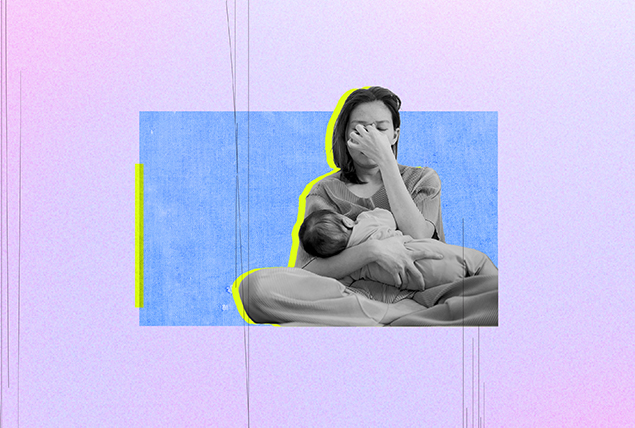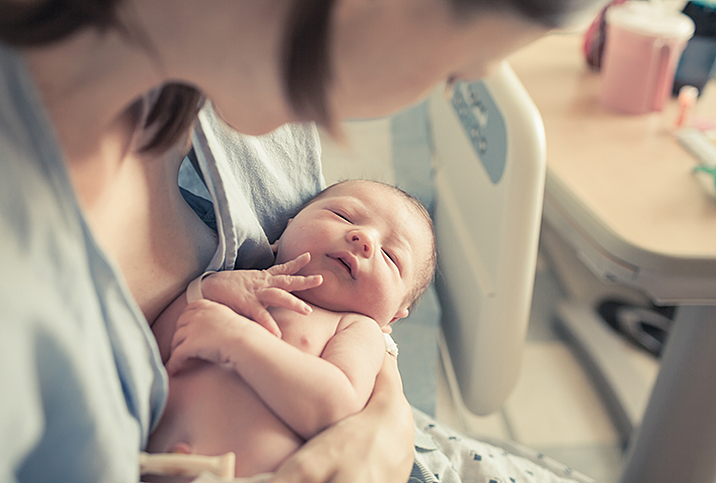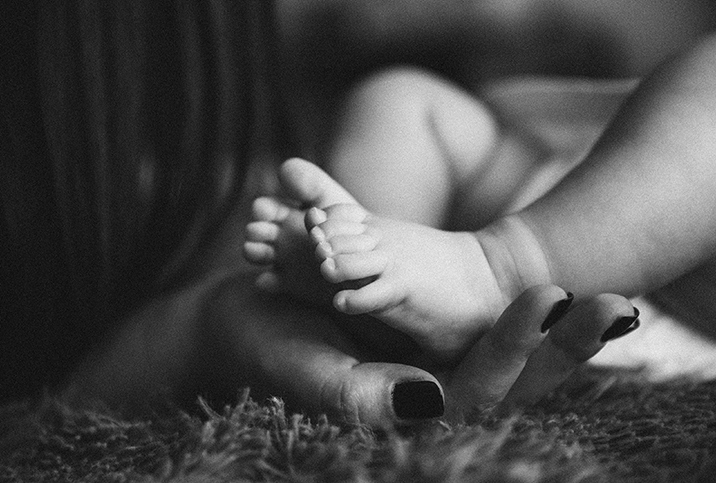Complications Can Accompany Postpartum Life

While your baby naturally requires most of your attention in the postpartum months, it is important to look after your own physical and mental health, too.
"There are so many things that are wildly different in a woman's body after birth," said Samantha Spencer, D.P.T., a physical therapist in Asheville, North Carolina, who specializes in pelvic and perinatal care.
These changes can create unnecessary fear and worry if people don't know what types of things to look for and what to do about them.
What to look for in the weeks after delivery
First, it is important to look after yourself in the weeks after you deliver your baby. Aftercare can differ depending on the type of delivery.
"Recover at your own speed and enjoy the postpartum interval as much as possible," said Hector Chapa, M.D., a board-certified OB-GYN and clinical assistant professor at the Texas A&M University School of Medicine.
The latest recommendation calls for women to resume sex when they are ready, but to wait at least two weeks in order to reduce infection risk and for the uterus to heal, Chapa said.
However, natural tearing or an episiotomy can lengthen recovery. The strain of pushing or pregnancy can also create hemorrhoids (also known as piles), which can affect a person's readiness for sex.
If you are breastfeeding, blocked ducts or cracked nipples can lead to mastitis, so it is important to see your doctor if you experience breast pain or flu-like symptoms. For any ongoing issues with breastfeeding, speak to a specialist or a lactation consultant who will be able to help.
Pain at the site of a C-section is common, too, even after the scar has healed.
"Sensitivity and tenderness can linger in some people," Spencer said.
She recommended massaging the scar tissue. Start gently and build up intensity to help the scar tissue move with the rest of your tissues again.
How can pelvic floor dysfunction affect your body?
A European study found pelvic floor dysfunction or disorder affected all of the pregnant or postpartum women who participated, and half of them discovered that their quality of life was affected by it.
The term pelvic floor disorder (PFD) refers to the conditions of stress urinary incontinence, overactive bladder syndrome, pelvic organ prolapse and fecal incontinence. A study of vaginal births found forceps deliveries and perineal lacerations, but not episiotomies, had an increased association with pelvic floor disorders.
"[PFD] can show up as urinary leakage, pain, heaviness or feeling like something is 'falling out,'" Spencer explained.
This disorder can happen after pregnancy, so it could be present after any type of delivery. Spencer said a pelvic physical therapist can help find any problems and make a plan to reduce any associated symptoms.
"As you get more active again after birth, you'll likely notice your pelvic floor getting stronger," she added.
Her recommendation is to sit or lie comfortably, then perform pelvic floor exercises by breathing out, contracting the muscles as if you're stopping urine or gas, and then relaxing on the inhale. Repeat these exercises for a few minutes every day.
Spencer also recommended trying a pelvic floor training device, as these can inform you about doing the exercises correctly. They can also track your progress.
Other parts of your body can be affected
In a 2015 study, urinary incontinence and back pain were found to affect many women in the 12 months after childbirth. Researchers found 77 percent experienced back pain, 49 percent had urinary incontinence and 40 percent had problems with both.
Exercise can help you regain strength as well as reduce back pain and leakage, but it is better to start slowly, especially in the first six to eight weeks after delivery. It is important not to strain or elevate your heart rate too much during this time.
Anything that increases vaginal bleeding is considered "too much," according to Spencer. She recommended starting with diaphragmatic breathing, gentle stretching and pelvic floor exercises. And she emphasized gentle movement and reconnection over intensity and competition.
"Your cardiovascular system has undergone massive changes during pregnancy, delivery and postpartum," she explained. "Your hormones are doing their thing, and you're probably not sleeping a whole lot."
Care for your mental health
Looking after your mental health is also vital in the first year after giving birth.
"The definition and diagnosis of postpartum depression can extend up to one year after delivery," Chapa explained, further advising that you should be aware of physical, emotional and mental symptoms throughout that time, not just in the weeks after delivery.
According to the United Kingdom's National Health Service, the symptoms of postpartum depression (PPD) can include the following:
- Feeling sad
- Tearfulness
- Being irritable
- Feeling agitated
- Loss of pleasure in activities you used to find fun
- Tiredness or lack of energy
- Problems with sleep
- Difficulty concentrating
- Loss of appetite
- Feeling negative about your parenting ability
- Struggling to bond with your baby
If you feel depressed or anxious in your postpartum period, it is important to reach out to your medical team for help.
A lot of people have never worked with a therapist for mental healthcare and aren't sure how to begin. Your doctor can likely give you options if you ask. Another option is telehealth. Video visits have become a viable option for most people, and more physicians and therapists have added them as a service. Giddy telehealth makes it easy to get connected to a qualified healthcare professional who can help with a variety of mental health conditions.
Mental health support options can include medication, support groups, one-to-one therapy and peer support, explained Juulia Karlstedt, M.A., a counselor and therapist who is accredited by the British Association for Counselling and Psychotherapy (BACP) and works at Anxiety Counselling Online, based in Edinburgh, Scotland.
"Anxiety takes us away from the present moment and time-jumps us either into the future, where something terrible might happen, or the past, where something terrible has happened," Karlstedt said.
She described these common symptoms of postpartum anxiety:
- Avoiding things that cause anxiety
- Being unable to leave your baby, even with someone you trust
- Being unable to leave the house
- Excessive checking on the baby
- Intrusive thoughts
- A sense that something terrible will happen
- Elevated heart rate
- Labored breathing
Mindfulness is a way to relieve or manage anxiety by reconnecting with the present moment, Karlstedt explained. One informal way to try mindfulness is a five-minute self-compassion break. A strong support system from family and friends can be a big help in looking after your child as well as yourself.
Relationship tips for the postpartum period
If you're in a relationship, stress levels may be higher than normal as you adapt to your new role as a parent or incorporate a new child into your family. The key to being resilient in this situation is good communication and making each other a priority as often as possible, Karlstedt said.
This reconnection could be achieved by arranging childcare to go on a date or just having an evening of togetherness without either partner checking their phone. Even just a few minutes of chatting to see how you're both doing can help.
As with everything in the first year of postpartum life and parenting, the goal is to figure out a way to make things work for you and the whole family. If that takes longer than you imagine or doesn't always feel like it's going well, remember to be compassionate with yourself, because it can be a difficult adjustment that takes time.
While your needs may not always be met, they are still as important as those of your child.


















